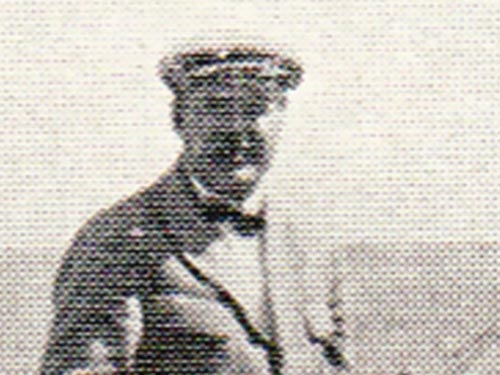
Boris Chanis
1886 – 1937
Agro-Joint, Medical Director, Dnepropetrovsk
Boris Chanis graduated from the Medical Faculty of Geneva University in 1916. He returned to Russia upon completing his studies and worked in the area of public health in the Ukraine. After the rise of Nazism in the 1930s, he assisted Jewish refugee doctors from Germany in finding work in the Soviet Union. Chanis was arrested twice by the NKVD, sentenced to death, and executed in 1937. He was “rehabilitated” (his name was officially cleared) in 1958.
Extended Profile
Boris Moiseevich Chanis, a physician, was born in 1886 in Peshtchanka, Podolsk gubernia (today Ukraine). He was the Director of the Agro-Joint Medical Department in Dnepropetrovsk, Ukraine (Soviet Union), and the Chief of Staff at the Oblast Industrial lnsurance Fund Polyclinic in that city. Chanis was a graduate of the Medical Faculty of Geneva University, where he studied between 1912 and 1916. After completing his medical studies, he returned to Russia and worked on public health issues in the Ukraine. Following the rise of Nazism in the 1930s, he assisted Jewish refugee doctors from Germany in finding positions in the medical field in the Soviet Union. Chanis was arrested for the first time in 1929 for “heading illegal money operations and connections with smugglers and German counter-intelligence agents,” and sentenced by the Commission of OGPU (the United State Political Authority of the USSR) to five years in prison. On June 15, 1937, he was arrested for a second time by the NKVD (People’s Commissariat of Internal Affairs) and charged by the Military Collegium of the Supreme Court of the USSR with “membership in a counter-revolutionary and terrorist organization.” He was sentenced to death on October 29, 1937, with all of his personal property to be confiscated, and executed on the following day. All the members of his family were also arrested. His son Aleksandr, a university student, was executed on February 8, 1938, under the order concerning family members of “traitors to the Motherland.” His wife Sima, a bacteriologist in the Dnepropetrovsk branch of the Kiev Research Institute, was sentenced to eight years in correctional labor camps. His younger son Yuri was sent to an orphanage. On January 28, 1958, Boris Chanis was “rehabilitated” (his name was officially cleared) by the Military Collegium of the Supreme Court of the USSR.
Sources
GADO (State Archives of the Dnepropetrovsk Oblast).
Mitsel, Mikhail. “The Final Chapter: Agro-Joint Workers – Victims of the Great Terror in the USSR, 1937-1940.” Eastern European Jewish Affairs, Vol. 39, No. 1, April 2009.
Morrissey, Evelyn. Workers and Farmers in the Crimea and Ukraine. Privately printed, New York, 1937.